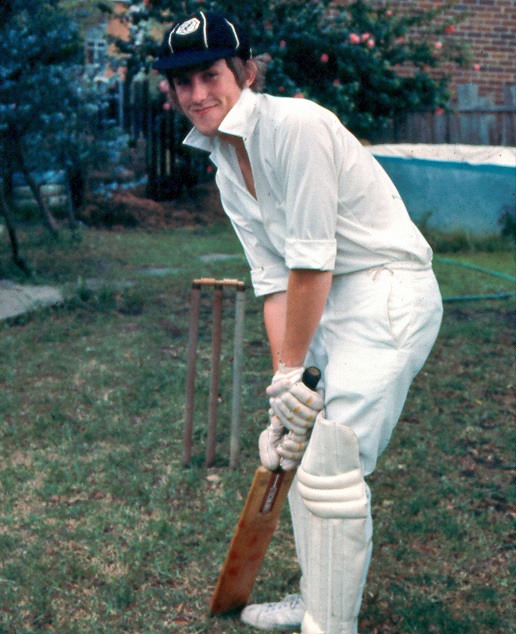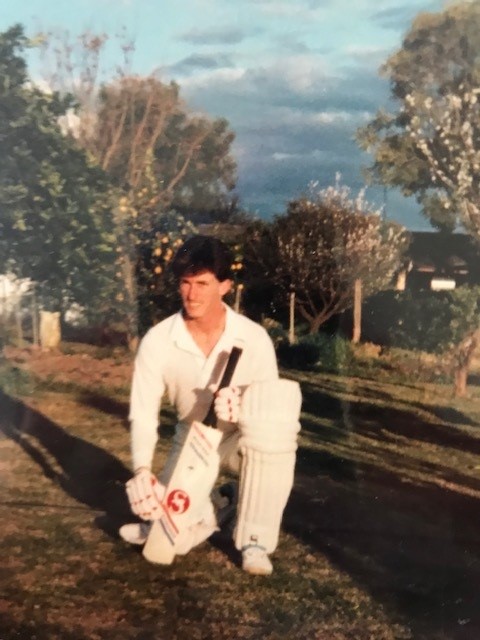
0 Followers
My son is 15 and loves cricket. During the off-season last year, he worked really hard on his batting.
He was opening the batting and really enjoyed it and wanted to get a lot better. But after two games and he scored 33 and 41 the coach said he batted too slow and for the rest of the season he was batting down the order and didn’t get many chances.
No, he says what’s the point of training this off season. It’s sad as he really does love batting and the game. What advice could anyone offer?
Partner Sponsors
Responses
Change clubs. Any decent coach would build a team around his stability and would also know that a slower scorer is more use to the team as an opener and foundation than bogging down the scoring in the final overs. Look for a club with accredited coaches.
This is a very tough one. The situation reflects the modern era of cricket whereby limiting overs leads to coaches and managers looking for batsmen to attack the bowling. The only thought that comes to mind is to find a club that is prepared to give your son a go at the top of the order.
Tell him to stick at it. Game awareness, understading tempo and the strategic stuff doesn't really kick in till 16-17. Until then it's just ball striking.
I remember getting 80 odd in a trial game for a junior rep team and being pretty happy.
Stuart Webster ( former NSW bat) came up and said, "well played, some great shots .... but, you put yourself under an enormous amount of pressure and if you'd worked the ball around more you wouldn't have needed to bomb them at the end."
Stuey just taught me the difference between ball striking and batting, although it took years for the message to sink in.
It's like the difference between hearing and listening. To listen you must engage the brain - when you bat you have to as well.
This winter get him working on getting off strike - add that to his 33 and 41 ball striking and you'll build him into a much better batsman
Just add to that :
When you 1st come in as an opener there are lots of gaps, so singles and boundaries are at their 'easiest', but you are more chance of snicking out, so openers have to leave a fair few.
To plug those gaps, fielders eventually come out of catching spots, so the batsman needs to change gears too.
The ball is older, so you can play shots with less risk and try to pierce the field.
Eventually fielders drop back and gaps open up for singles again, so you have to change gears again, but by now you can feed the strike to your batting partner who may be a bit fresher + is being offered more gaps.
Understanding that might help your son make a plan about how he is going to bat in between gear changes.
Nothing more frustrating that seeing the field drop back a few yards and seeing guys trying to smash it through - I tell kids I coach "nice shot no run"
It doesn't matter so much how you get them, but the game is about scoring runs.
Drew, sounds like your son may need a change of scenery for next season.
It is extremely disappointing to hear that an under 15s coach is measuring success by a player's strike rate, rather than runs on the board and stability from your opening batsman.
From the limited information provided, it appears that your son has all of the attributes to be a successful red ball opening batsman, so maybe you may need to move from junior cricket, to a more competitive long form of cricket.
I don't know what the Newcastle grade cricket ranks are like, but if you can start off in the lower grades as a 15 year old, I am sure your son will develop his skills quicker than the boys in his old team, who will be instructed to go out and bash every ball.
What I have seen in junior cricket is, everyone develops physically at different rates, so the kids that are big now and can hit harder, will more than likely stay at that level. You normally see a couple of kids in each competition bigger and stronger, but they do not always reach the same levels when they get to senior cricket, because skill and attitude come into play.
The bigger problem is the changes that have been made in junior cricket to have limited times and balls faced, to ensure that all players have the same opportunities. Kids have to retire when they get to 30 or 50, and you would hardly ever see any junior cricketer score a century, or someone bat all morning in a local junior match.
I am particularly disappointed with this coach, what he should be doing is building his team around the solid platform your son is providing at the top of the order, rather than seeing your son's success as a detriment to the team. I would be interested to know how the team went after your son was moved down the order, and did the coach get the success he was seeking.
Personally, I would be looking to move to a competition that is played over 80 overs (or more) a day, and sticking to your current batting style of seeing off the new ball, and stabilising the top order. Perhaps the only other advice I could offer is, if you are at the top of the order and you have done all of the hard work to see off the new ball and then get to 30 or 40, you have to turn those scores into big scores.
Dont change for someone else, only change is you want to.
Good Luck
I suppose not knowing the FULL story - such as how did the change in the order go for the rest of the season?
My advice is not to give up and definitely keep training. The positive out of this is firstly, this young man values his wicket and with that he will be well suited to playing grade cricket (2-day format) as a start.
2nd I agree with David above the best advice is to focus on working the ball and getting off strike. The big scores will come, and this young fella will be playing a good level of cricket for a long time.
Please enjoy it..
Hi Drew
Is changing clubs the right thing to do?
Only you will know, but I’d like to offer a different perspective.
By changing clubs, you’re going into a different environment, different people, different relationships, and varying levels of loyalty, and who’s to say the same thing won’t happen again next season?
Without knowing the level of cricket your son is playing, I’d suggest arranging a meeting with the club president and coach to discuss what happened last season and get their feedback on what he needs to do to improve. It’d be important that he’s at the meeting so he can hear the feedback and, if he’s comfortable, ask his own questions.
A meeting such as this can clear the air and provide clarity and whose to whether the same coach will be coaching the team again next season.
If he has good friends on the team, staying at the same club could well be the right thing to do.
Another off-season at his age means he’s still growing. His natural growth and the right program will see him stronger and fitter, and it will carry through to his batting with greater timing, concentration, and confidence to hit the ball through the field.
I fully agree with David in terms of the art of batting and getting off-strike. Sadly, I think some coaches lose perspective on wanting their players to hit the big shots and boundaries.
Not every ball can go to the boundary, so if your son is able to find a way to move the ball around the field with singles and twos and then hit the odd boundary, he will score a lot more runs, and the team will greatly benefit.
You mentioned your son loves the game but is a bit down at the moment. I understand that, so here’s another suggestion.
Field is the thing cricketers do most of all in any game. He’ll spend more time fielding than batting, so I wouldn’t be too worried about him getting back into the nets in April.
Take him down to the local park and do some fielding drills. Taking catches, throwing balls at the stumps. A good diving catch or throwing down the stumps from 15 to 20 metres away could be a great way to reignite his passions. Let him do it again and again.
One thing for sure if you do it right is that he’ll become a much better fielder, and that’s a great thing for his cricket and his team, and it’ll build his confidence and game awareness.
It may also be the catalyst for him to want to work as hard as he did last off season.
The most important thing for your son is for him to have fun. There are many different ways in which you can help, but please don’t let one coach take his enjoyment and love out of the game.
Coaches come and go.
Here’s also a little video that might help – a batting masterclass with Ricky Ponting.
The message in this video I love most is Ponting saying there’s a small area on the wicket that he believed belonged to the bowler. A ball that hits the wicket in this area, he believed, needed to be respected and defended.
If the ball landed outside Ponting’s small but defined area, it was for him as the batter and an opportunity to score runs. It might be a single, a two, or a three. It could also be a boundary, but Ponting knew it was up to him to take advantage of the opportunity.
All the best Drew I hope this helps in some small way.
?si=p7Uy9k5bm94-SIRV
Thanks for asking...batting is always the balance between run scoring, and not taking too many risks so that you are out. Every ball is an opportunity to score, and the batsperson has to figure out where the best and safest scoring opportunities will be (where the fielders aren't). Equally batters have to be ready to instinctively whack a loose ball for four...batting is about experience, intelligence, and instinct.
It's a silly game isn't it
Thank you all for the great advice. I do appreciate the support and I'll share it with my son tonight and over the weekend. I'm sure all the words of encouragement will help. Thank you
First of all, what a great cricketing community offering some awesome advice to Drew and his boy who just loves the game.
Hey Drew, I would love to see your son for a pro bono batting session (1-1.5 hours), obviously with some distance from Newcastle to the Northshore there is no need to continue with me. I’m here to help!
I absolutely LOVE the game, which still gives me so much joy from being an ex 1st Grade Player, UK Overseas Professional and Jnr Cricket Coach to this day.
He needs a confidence boost and building a love for enjoying the process (training). I have some technical drills on turning the strike over and feeling free to hit the loose ball as Dirk mentioned above.
Call me in need on M. 041 *** ***
Firstly, without knowing what format you are playing (T-20 obviously very different from longer form), I would say in general you can’t score runs sitting in the shed.
The ability and hunger to occupy the crease is a huge asset. Many young players go through this, I did.
The art of building an innings is something that needs to be learnt.
In short, the best players look to score off every ball. Work on having a positive mindset every ball, even when defending or leaving deliveries. Look to rotate and get off strike as much as possible.
Pressure the field by running hard between the wickets. This positive mindset will help you put bad balls away when they do come.
Your scoring rate will improve if you work on these things.
















Having read the other comments here and quietly agreeing with most of them - especially as my credentials are less than others here - I would like to add the following, which probably does little more than acquiesce to their wiser council.
As a young player, I didn’t play comp cricket until 15 and spent 2 seasons getting bugger all, until I heeded my great uncles advice to never look where the fields men were but where there were gaps and as I faced up, to tell myself to get to the other end. It was harder to get out at the bowlers end.
At 17, thanks to a selector who recognised something frustrated team mates and their coach/dads didn’t, I made 42x in Sutherland‘s Durham Shield side that was rolled for 72 by a tyro from the Grade club called Eek (Graeme I think). Getting to the other end focused me on playing the ball into the gaps. Over the next 15 years, the same mantra created a positivity in me that kept me at the crease and scoring 1’s and 2’s off a higher percentage than team mates.
I was never more than a handy lower grade bat but I like to imagine I was a keen student and able to recognise wise council which, with my love of the game, helped sooth the ache to play higher. In the end, loving the game and accepting our role as custodians, regardless of the best cricket we play and in which company, is the higher calling.
Of course, that’s years away for your son. If he reaches that state, he’ll be miles beyond his current coach.
The error is not in your son.